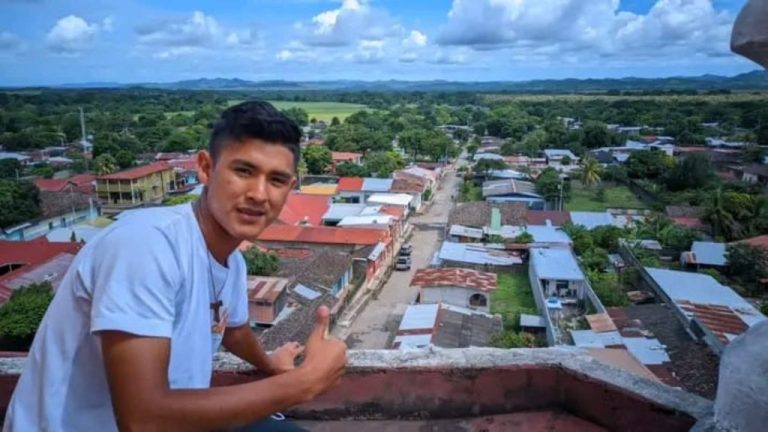23 de septiembre 2023

“NicaraguAmor” Cultural Caravan for Nicaraguans in the USA

PUBLICIDAD 1M
PUBLICIDAD 4D
PUBLICIDAD 5D
The 17-year-old had been an altar boy in a Nandaime church and was working in Costa Rica as a cameraman for “TicaVision”

Kevin Martinez, a young Nicaraguan exiled in Costa Rica, was detained when he returned to his native country. Photo from social media.
Nicaraguan exile Kevin Josué Martínez, who works as a cameraman in Costa Rica, was abduction by the Nicaraguan National Police on September 20, when he returned to visit his family. His illegal detention was denounced the next day by opposition activists and the Costa Rican media outlet with which he collaborates.
The 17-year-old youth, who had returned from Costa Rica where he’d been exiled, was detained by law enforcement officers at his home in the municipality of Diriomo, department of Granada, in southeastern Nicaragua, according to the denunciation.
“We denounce yesterday’s kidnapping of Kevin Martínez, 17, by the regime’s police. He was an altar boy who was exiled in Costa Rica,” reported the group Citizen Activism in Resistance on its Twitter (now X) account.
As often happens after politically motivated abductions, the Nicaraguan National Police have neither confirmed nor denied his arrest.
The Nicaraguan University Alliance confirmed that Martinez was arrested when he returned to his native country. They advocated for his release and for an end to “religious persecution.”
The original denunciation was made by “TicaVision”, which defines itself as a television company for Costa Ricans’ family entertainment, but that also keeps over 800,000 Nicaraguan in Costa Rica informed.
“Kevin was in Nicaragua on a family visit, after the Sandinista Police sent him a message saying he could return,” stated the media outlet.
The youth had been one of the altar boys for now-imprisoned priest Manuel Salvador Garcia. He fled Nicaragua for Costa Rica on December 31, 2022, after receiving police threats, in the context of the crisis that Nicaragua has been undergoing since April 2018.
During that April in 2018, thousands of Nicaraguans took to the streets to protest controversial Social Security reforms. When the government of Daniel Ortega responded to the demonstrations with violence, the initial protests turned to a demand for his resignation.
The protests left at least 355 dead according to the Inter-American Commission on Human Rights (IACHR), although some Nicaraguan organizations raise the figure to 684. Ortega himself has acknowledged that there were “more than 300” deaths, although he maintains that these were not citizen protests but an attempted coup d’état.
Nicaragua’s political and social crisis worsened after the discredited general elections of November 7, 2021, in which Ortega re-elected himself for a fifth term, with his main contenders in prison or in exile. He’s now serving this fourth consecutive term, the second with his wife Rosario Murillo as vice president.
This article was originally published in Spanish in Confidencial and translated by Havana Times

PUBLICIDAD 3M
Agencia de noticias internacional con sede en Madrid, España. Fundada en Burgos durante la guerra civil española en enero de 1939.
PUBLICIDAD 3D